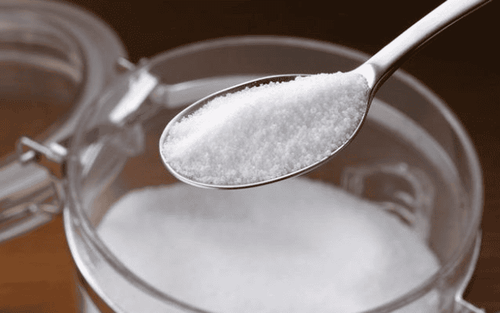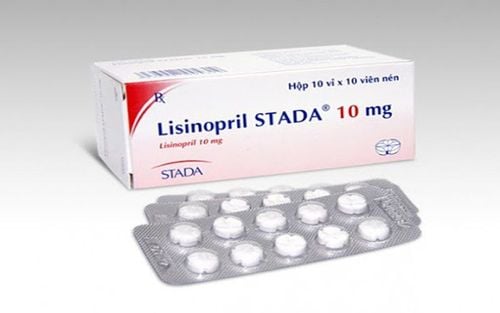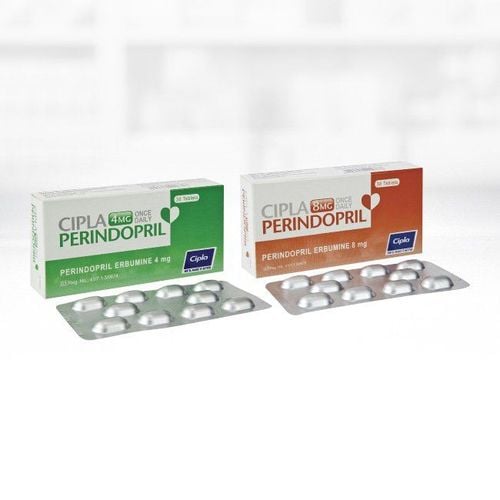This is an automatically translated article.
The article was professionally consulted by Doctor General Internal Medicine Doctor - Department of Medical Examination & Internal Medicine - Vinmec Hai Phong International General Hospital.
Congestive heart failure is a condition in which the heart does not contract effectively, leading to reduced blood flow to the organs in the body, causing blood stasis in the peripheral venous system.
1. Some facts about congestive heart failure
Heart failure is a disease caused by a decline in the contractile function of the heart muscle, not meeting the body's blood supply needs, and at the same time causing stagnation of blood and fluid in the blood vessels and organs (also known as heart failure). congestion). In most cases, heart failure is not a primary disease (caused by the heart) but a consequence of many different causes.
2. Causes of congestive heart failure
Congestive heart failure can be the result of many secondary causes:
Congestive heart failure after a myocardial infarction: When a blood vessel supplying the heart (coronary artery) is blocked for some reason, it will lead to The blood supply to the heart muscle is cut off. From there, some areas of the myocardium that are necrotic die, forming scars, leading to a decrease in the ability of the heart muscle to contract. Congestive heart failure after hypertension: High blood pressure for a long time but not well controlled will create a great resistance in the blood vessels. At that time, the heart must contract more, contract harder to overcome this resistance. If the heart has to work too hard for a long time, it will lead to heart failure. Heart valve disease, including open and narrow heart valves (especially mitral valves): If left untreated, in the long term, the heart can work beyond its capacity, causing heart failure. Congenital heart diseases such as ventricular septal defect, atrial septal defect, tetralogy of Fallot... Myocarditis . Prolonged tachycardia causes heart failure. Alcoholic cardiomyopathy: Drinking too much alcohol weakens the force of heart muscle contractions. About 40% of congestive heart failure has no identifiable cause for heart failure.
3. Symptoms of congestive heart failure

Shortness of breath This is the earliest, most common symptom. The patient has a feeling of shortness of breath, lack of air, suffocation, appearing when exertion such as climbing stairs, jogging or vigorous exercise. If the heart failure is severe, it occurs even when the patient is lying down, not doing anything. Shortness of breath often occurs at night, when the patient is lying down, breathing is easier when sitting up.
However, shortness of breath is not only a symptom of heart failure, but also a sign of many other diseases. Therefore, it is difficult to distinguish the exact cause of shortness of breath is due to heart failure or lung disease or other causes.
Edema In the early stages, the edema is usually inconspicuous in the ankles or insteps, characterized by soft, white edema, which is concave when pressed with the finger and no pain is felt. Edema is usually mild in the morning and more pronounced late in the day. As heart failure progresses, edema gradually increases, is recognizable and sometimes generalized.
Edema in heart failure is a consequence of decreased myocardial contractility, causing fluid retention in the body and then escaping into peripheral tissues. In addition, decreased blood flow to the kidneys is also the cause of edema due to increased salt and water retention in the body. This is also a sign of stagnant circulation in the body, when the heart does not contract enough, the amount of venous blood flowing to the heart is also stagnant, as a result, blood is retained in the system. veins and manifests as prominent cervical veins under the skin, especially when the patient is lying down.
Other signs Enlarged liver. Cough at night, dry and often accompanied by shortness of breath. Or tired, especially when doing heavy work, exertion. Insomnia, trouble sleeping, not getting enough sleep due to coughing and shortness of breath at night.
4. Diagnostic tests for heart failure
Echocardiography: This is the most important laboratory to help diagnose heart failure, helping to evaluate the ejection capacity of the heart muscle by the EF index (ejection fraction). In addition, ultrasound also helps to evaluate the condition of the heart valves (cardiac stenosis), the dilation of the heart chambers as well as detect abnormalities of congenital heart disease (cardiac shunts)... X- Cardiopulmonary radiograph: Detects enlarged heart, increased blood vessels in the lungs due to pulmonary congestion as well as signs of lung infection causing acute heart failure in patients with chronic heart failure. Electrocardiogram: Has little value in diagnosing heart failure, mainly evaluating arrhythmias caused by heart failure.

5. Heart failure grading
According to the NYHA, heart failure is classified into 4 degrees
Grade I: No limitation of movement, normal physical activities do not cause fatigue, shortness of breath. Grade II: Slight limitation of physical activity. When patients are well at rest, strenuous physical activity will cause fatigue and shortness of breath. Grade III: Limited physical activity. The patient is well at rest, but even light exercise causes fatigue and shortness of breath. Grade IV: Total limitation of movement. The patient's fatigue, shortness of breath even at rest, increased more with very light physical activity.
6. Treatment of congestive heart failure
Therapeutic principles Treat predisposing factors for acute heart failure. Control the progression of heart failure. Treat the main cause of heart failure. Supportive treatment. Treating the triggering factor If there is an infection such as pneumonia, UTI, then use antibiotics, reduce fever if fever is present. If you have high blood pressure: With good blood pressure control, the symptoms of heart failure will also decrease. If the heart rate is fast, take medicine to control the heart rate. Anemia: Complete blood and fluid replacement. Control the progression of heart failure Including 3 main groups of drugs are inotropes, diuretics and vasodilators.
Drugs that increase myocardial contractility such as digoxin, dopamine, dobutamine are often used in cases of severe heart failure or cardiogenic shock. Diuretics include loop diuretics (Furosemide) and anti-aldosterone diuretics (Spironolacton) to help remove fluid, reduce symptoms of blood stasis caused by heart failure. Vasodilators: ACE inhibitors or Aldosterone receptor blockers are preferred because they both help vasodilate, limit the reabsorption of salt and water in the kidney, and protect against myocardial remodeling effectively. Treat the cause of heart failure (if possible) Heart valve disease or congenital heart disease: Temporary or radical surgery in young subjects, the prognosis is good. Hypertension: Good control of blood pressure, both to help limit acute heart failure, and to treat the main cause of heart failure. Other supportive treatment Keep head elevated if breathing is difficult. Give oxygen if respiratory failure is severe. Adequate nutrition, adequate fluid replacement, ensure energy for the patient to function.
7. Lifestyle for heart failure patients

Salt restriction diet because eating too much salt will cause water retention and edema. The average amount of salt a day should not exceed 2g. Maintain ideal weight, lose weight if overweight. Monitor weight daily, weight gain is an early sign of water retention in the body, worsening heart failure. No alcohol, no smoking. Do appropriate physical activity, take time to rest, especially when tired. Adhere to treatment and take medication as prescribed. Do not stop taking your medicine or change the dosage without consulting your doctor. Seek medical attention right away if you have any unusual symptoms or if signs of heart failure get worse. To protect cardiovascular health in general and detect early signs of cardiovascular disease, customers can sign up for Cardiovascular Screening Package - Basic Cardiovascular Examination of Vinmec International General Hospital. The examination package helps to detect cardiovascular problems at the earliest through tests and modern imaging methods. The package is for all ages, genders and is especially essential for people with risk factors for cardiovascular disease.
Please dial HOTLINE for more information or register for an appointment HERE. Download MyVinmec app to make appointments faster and to manage your bookings easily.













